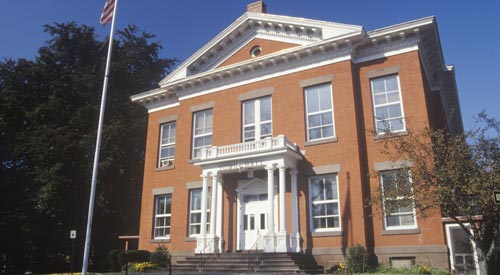Attacks, Crashes Underscore Need for New 911 Systems
Stateline: A 911 dispatch center in Vail, Colorado. Colorado and many other states lack the funding to implement next-generation 911 technologies that can combat pranks and other problems that cause mobile phones to repeatedly call and jam emergency lines. © The Associated Press A recent rash of disruptions in antiquated 911 emergency-response systems points up the urgent need for new technology to save lives in the wireless age. But few states or localities have the financial means to pay for it on their own. Earlier this month, AT&T wireless customers nationwide found they couldn’t dial 911, prompting local emergency officials in more than a half dozen states — including Alabama, Colorado, Florida, Indiana, Oregon, Tennessee and Texas — to tell people to call an alternate number or text authorities in case of emergency. The company said it was a “service issue.” The Federal Communications Commission is investigating. In Dallas this month, callers were unable to reach 911 during spikes in calls that put hundreds of people on hold. City officials blamed a combination of calls from T-Mobile customers and a shortage of people to handle calls.
Tags
Share
Top Stories
- Future-proofing smart cities with open standards
- 5 States Challenged the Federal Contractor Wage Increase and Lost
- States should follow feds in Chinese tech bans
- A new initiative seeks to help small cities access infrastructure funding
- Governments view open source as critical for enhancing digital services, experts say
- More States Move to Ban TikTok from Government Devices
- Cyber, digital services, workforce primary focus for state CIOs in 2023
- Virginia has a data center problem
- Efficient public safety demands evolving tech
- Digitized services drive citizen satisfaction
- State chief information officers are handling much more than just tech
- States target mainframes in legacy system modernization
- How one city’s IT team keeps up with rapid growth
- How one agency’s cloud migration smoothed the path for others
- NASCIO: States must ‘hyper-focus’ on IT modernization
- Louisiana Becomes First State to Receive Internet for All Grants
i360Gov Newsletters
The most significant government policy, business, and technology news and analysis delivered to your inbox.
Subscribe NowTrending
- Mayor launches IT modernization to boost services delivery
- Local government on the edge: The future of IT infrastructure
- Digitized services drive citizen satisfaction
- Why cities and towns see a huge economic opportunity in the semiconductor bill
- New York state pumps the brakes on crypto mining
- The best offense is a strong defense: Improve cloud security with visibility and zero trust segmentation
- How state and local leaders can use data to ensure broadband access for all
- Over $105 Million Going to Better Internet for Native American Communities


















